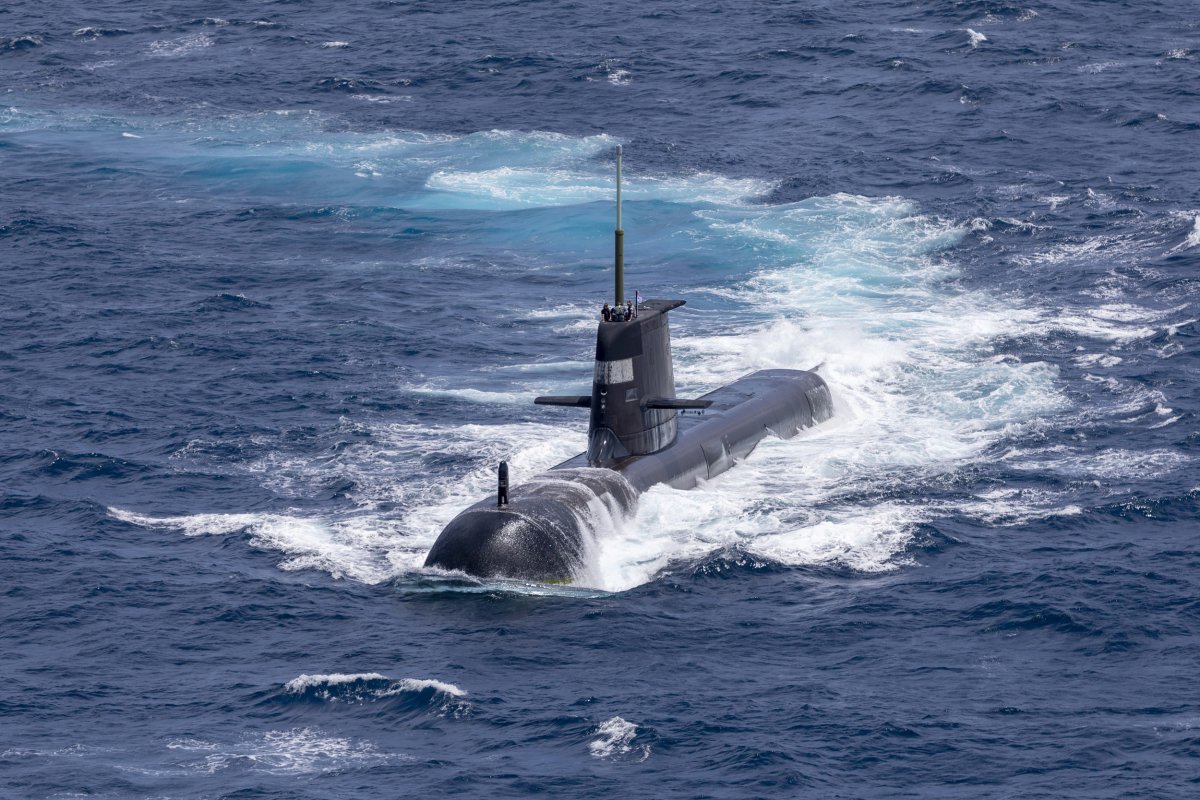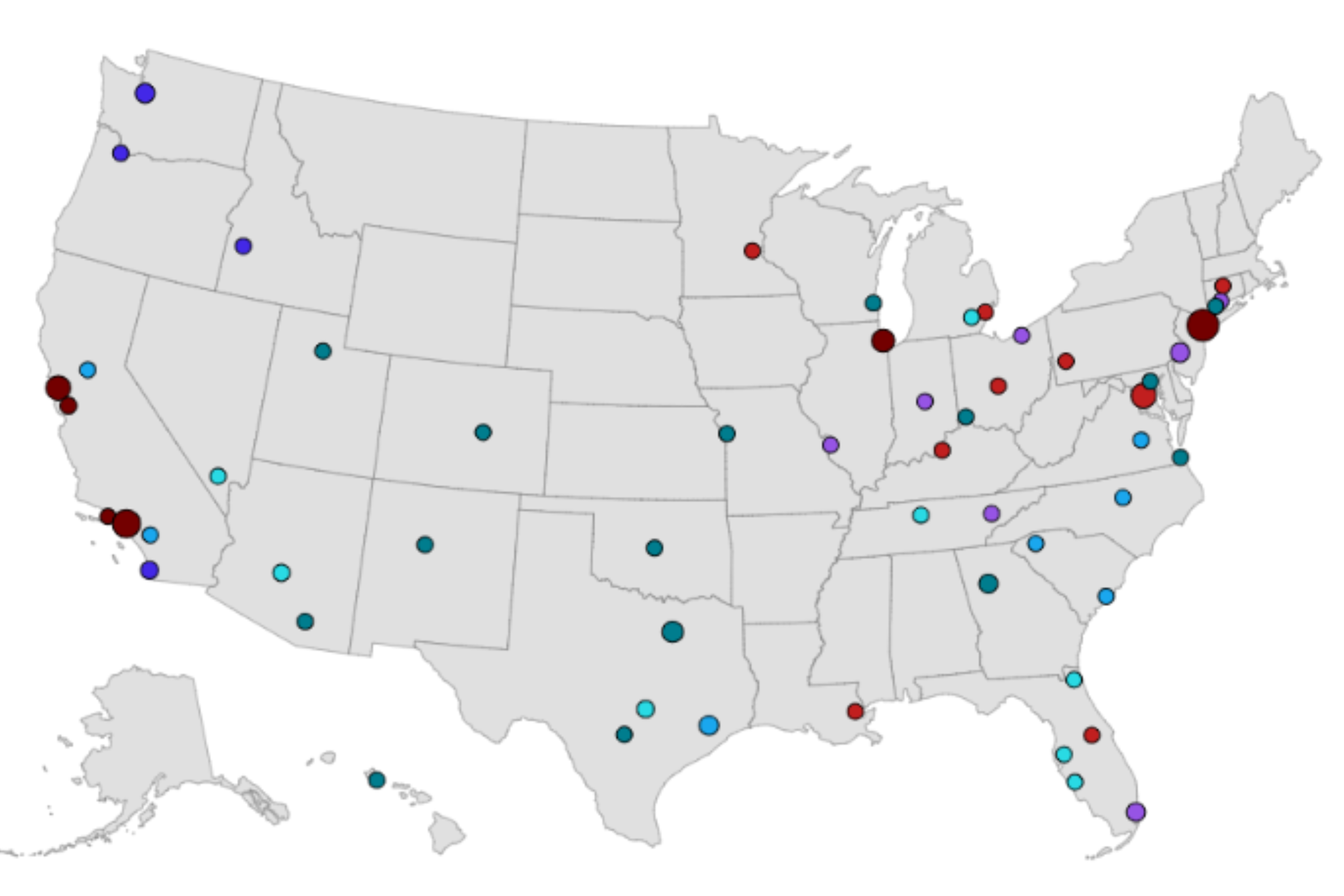The Australian government's decision to pull out of their contract with France to deliver submarines was not entirely without justification, but their deal with the U.S. and U.K. to purchase nuclear submarine technology has dangerous ramifications for the public and our neighboring nations.
Under the AUKUS security partnership, Australia will build eight nuclear-powered submarines with U.S. and British technology. This is instead of the 2016 deal on conventional submarines struck with France's Naval Group. That deal was valued at approximately $AU 50 billion, upon cancellation of the contract, it had blown out to $90 billion.
"Moving full steam ahead with the current Future Submarine project defies logic," argued Maria Rost Rublee, associate professor of politics and international relations at Monash University, in a 2018 blog post. Three years later, her views are vindicated. Rublee has been working in nuclear science and nuclear diplomacy, including nuclear subs, since 1997.
"On one hand we knew there were issues with the French contract on submarines—cost blowouts, a lot of issues between the French and the Australians getting the work done. Many experts were saying this needs to be re-thought. When the deal started a lot of people said it was a mistake ... so it was not good to start with," she said.
The way Australia's Prime Minister Scott Morrison handled the revelation of AUKUS and the cancellation of the French deal was a major diplomatic blunder. It will likely jeopardize Australia's free trade agreement with the European Union. More than that, it blindsided Australia's neighboring nations in the Asia Pacific region.
Malaysia's Prime Minister Ismail Sabri Yaakob voiced his concern that the nuclear submarine project might heighten military tensions in Asia.
"It will provoke other powers to take more aggressive action in this region, especially in the South China Sea," Yaakob said.
Indonesia's Prime Minister Joko Widodo canceled a scheduled meeting with Scott Morrison. A spokesperson for Indonesia's foreign ministry said that the nation was "deeply concerned about the continuing arms race and power projection in the region."
In 24 hours, Australia's prime minister managed to alienate and infuriate France (which withdrew its ambassador), and major trading partners China and Indonesia.
There are many unanswered questions in this new trilateral agreement that exacerbate the fears of the Australian public and our neighboring nations. While nuclear-powered submarines are not weapons, will Australia be granted approval to enrich uranium on Australian soil, thus enabling the production of nuclear weapons? That would be a kick in the teeth to Australia's signing of the nuclear Non-Proliferation Treaty (NPT). What will the cost be of this new deal once training and infrastructure costs are accounted for? And what level of security is Australia really investing in, since eight submarines are not sufficient to achieve so called sea denial—efforts to deny an enemy's capacity to use the sea, without attempting to achieve control of the sea for its own use?
Australia has seemingly created enormous economic and diplomatic divisions globally, while revealing none of the specific details around its deal to the Australian taxpaying public. Australians don't know where the port for submarines will be located, nor what the contingency plans are if something goes wrong. We don't know who will operate these submarines nor who will service them, since nuclear technology is an entirely different set of skills to operating and maintaining conventional submarines.

"We are not going to be able to build these things. We don't have a military nuclear industry. If [the Australian government] cares about this, they should be buying them, not building them. Eight submarines gives us very little ... you cannot block people from coming into your waters. You need at least 24 for sea denial. That essentially allows you to create enough uncertainty that an adversary won't want to come into your waters," Rublee said.
In 2003, the Australian Navy stated that the country is a maritime nation and the ability to use the sea is critical to the protection of national interests. Threats faced by Australia must come on, over or under the ocean. Therefore, the focus of military defenses should be focused on protecting Australia's maritime area.
Beyond the shortcomings of the size of the fleet and the lack of clarity on whether Australia will be buying or building the submarines, or whether Australia will also be enabling weaponized U.K. and U.S. submarines to dock in Australia, is the question of nuclear waste and how Australia can justify this form of fuel in the age of climate change awareness.
"There's no question that nuclear waste lasts a very long time in the environment, up to 100,000 years or more and has measurably damaging effects on both human health and the environment," Rublee said.
According to Rublee, the majority of U.S. and British nuclear warheads carried by submarines are 100 kilotons. They are four to six times more powerful than the bombs dropped on Hiroshima and Nagasaki. China's nuclear warheads carried by their submarines are believed to be 1 megaton—which are 40 to 60 times more powerful than the bombs dropped on Hiroshima and Nagasaki.
What Australia's deal as part of AUKUS involves is less clear than the bottom of the ocean. The implications of uranium enrichment in Australia, aggravating China's fury in an already worsening relationship with Beijing and alienating the entire European Union when our major trading partner has already severed much of our export market are all dire. There's many questions for Scott Morrison to answer, not to France, but to the Australian public. After all, well beyond his prime ministership, there may be hundreds of thousands of years of nuclear damage for generations of Australian citizens to contend with as a result of his impulsive deal.
Cat Woods is a freelance writer based in Australia. She writes on art, culture and travel for international publications, and regularly writes on music for both U.S. and Australian publications. When not writing, Cat teaches yoga, Pilates and barre, listens to podcasts, binge watches anything with subtitles, and walks her two highly intelligent, very bossy dogs around her beachside home in the inner south of Melbourne.
The views expressed in this article are the writer's own.
Uncommon Knowledge
Newsweek is committed to challenging conventional wisdom and finding connections in the search for common ground.
Newsweek is committed to challenging conventional wisdom and finding connections in the search for common ground.
About the writer
To read how Newsweek uses AI as a newsroom tool, Click here.








